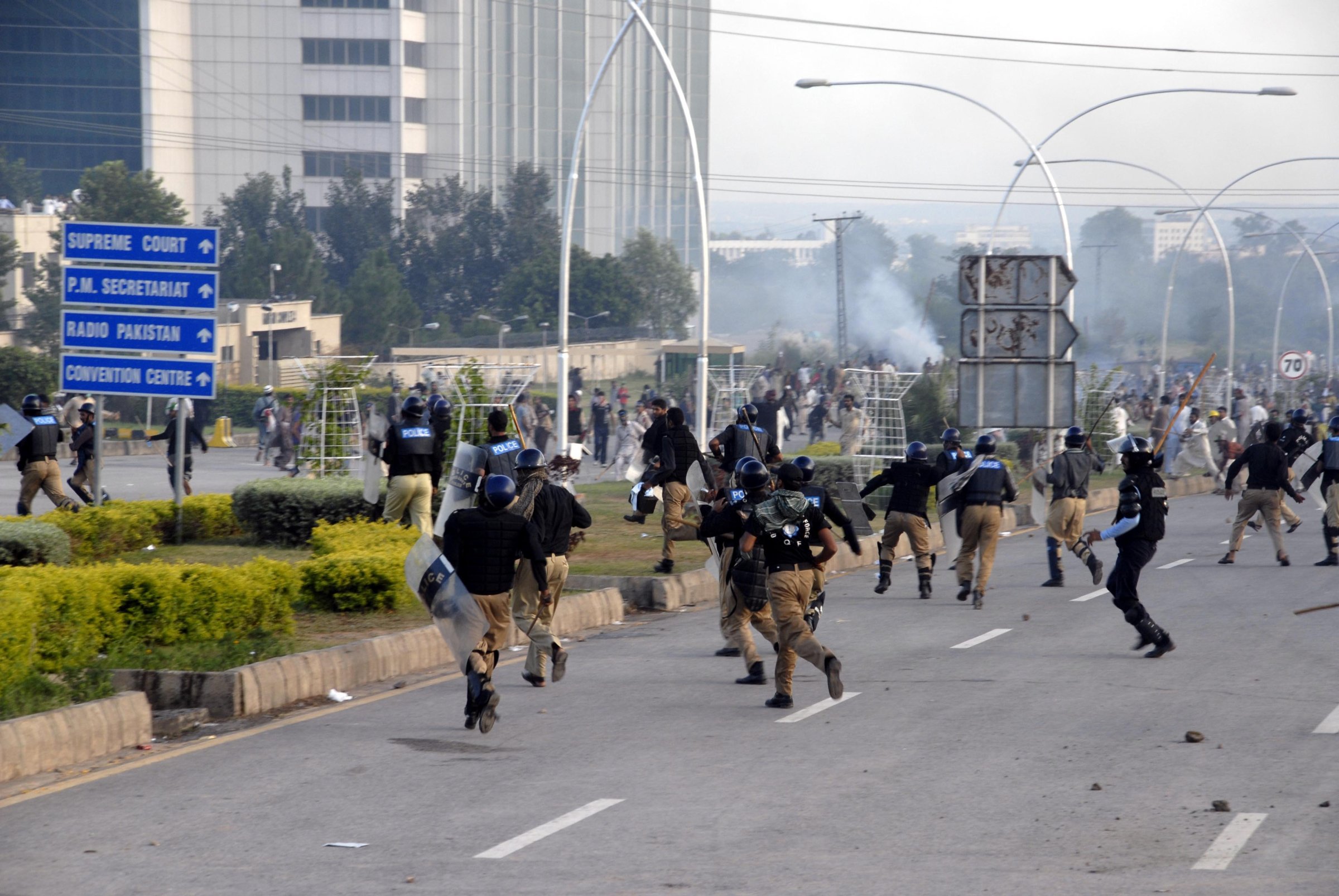
The standoff between the Pakistani government and protesters calling for the resignation of Prime Minister Nawaz Sharif continued in Islamabad on Monday, with rumors circulating around the capital that the army was somehow involved in the plan to overthrow the government.
The LA Times reported that cricketer turned politician Imran Khan, who has led the anti-Sharif movement along with cleric Muhammad Tahir ul-Qadri, faced allegations by the head of his own party that he was in cahoots with the military.
But a spokesperson for the party later called the rumors “unfounded and unfortunate,” and the military also issued a statement along similar lines.
“Integrity and unity of the army is its strength,” the army statement said, bemoaning that it was “dragged into such controversies.”
Tens of thousands of protesters have thronged the “red zone” of Islamabad for over two weeks now. Many are armed with knives, sticks and improvised weapons, while security forces have fired rubber bullets and tear gas ostensibly to maintain order. Three people were killed and 400 wounded during clashes over the weekend.
Despite repeated denials, the army’s neutral stance is still being questioned, and a spokesperson was forced to denounce as “baseless” allegations that army chief General Raheel Sharif asked Nawaz Sharif to resign when the pair met on Monday.
A Tuesday editorial in Pakistan’s leading English-language news outlet, Dawn, then highlighted the military’s uncharacteristic behavior over the past week. “The army is hardly being ‘neutral.’ It is making a choice,” it opined, alluding to the armed forces’ reluctance to take action against violent protesters and its directives to the Pakistani government.
“The army’s neutrality is questionable, but it is very hard to prove otherwise,” said Sheharyar Khan, a lecturer at the School of Government and Public Policy of Pakistan’s National University of Sciences and Technology. Speaking to TIME from Islamabad, Khan said the army’s actions clearly indicate a tilt toward the dissenters.
“If there is some sort of power-sharing agreement between the army and the government, then this whole issue would probably be resolved in a week,” he said, adding that the Prime Minister would have to make concessions on issues like foreign policy, which has long been a bone of contention between the government and the army.
Khan also poured water on the possibility of either a military takeover or Sharif’s resignation — the former because of the political power and backing Sharif enjoys, and the latter because he says the Prime Minister is too stubborn. “The only way he will leave office is if the army drags him out, and the army is not really in a position to do that,” Khan said. “An overt military takeover is not on the cards, but I don’t see this ending in a resignation.”
A joint session of the Pakistani Parliament took place on Tuesday to address the escalating standoff between the government and protesters, at which lawmakers from all sides expressed support for the embattled Sharif.
More Must-Reads from TIME
- How Donald Trump Won
- The Best Inventions of 2024
- Why Sleep Is the Key to Living Longer
- Robert Zemeckis Just Wants to Move You
- How to Break 8 Toxic Communication Habits
- Nicola Coughlan Bet on Herself—And Won
- Why Vinegar Is So Good for You
- Meet TIME's Newest Class of Next Generation Leaders
Contact us at letters@time.com